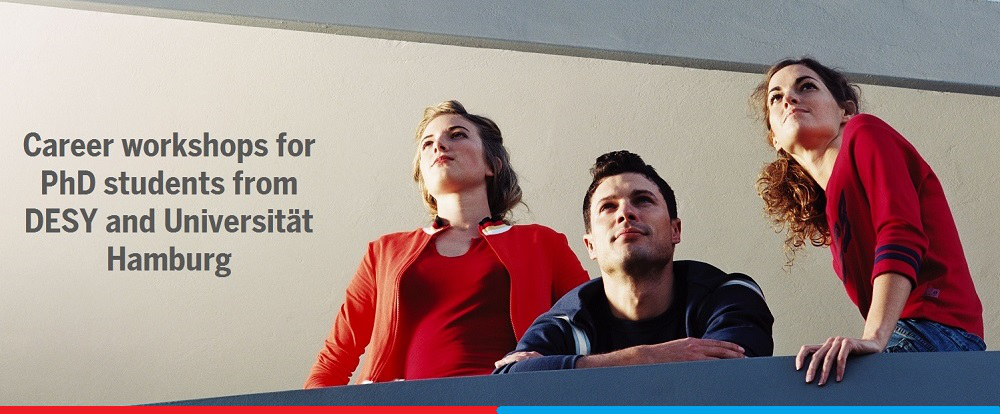Workshop 1
Leadership Skills for Scientists
21 Mai 2015
Course content
Research science, by its very nature, is a collaborative venture. Being able to lead a team, motivate people and negotiate positive outcomes are skills essential in order to progress from a PhD level. Having a PhD means that you are going to be in a leadership position soon.
The scientific environment, in both academia and industry, creates its own particular set of challenges, as the teams are made up of highly intelligent, independent and innovative men and women. In such an environment, excellent leadership, motivational and negotiation skills are essential in order to ensure full use of all available talents and so achieve the appropriate success.
This workshop will cover how to motivate and persuade people, when it is appropriate to use authority, negotiating win-win outcomes, creating a “can-do” attitude and environment and dealing with conflict as well as conflicting motivations and goals.
Participants will learn how to provide strong leadership and strong arguments when necessary and so forge efficient and productive teams - essential for success in today’s competitive research environment. This workshop covers:
1. How to motivate people and persuade effectively
2. When it is appropriate to use authority
3. Dealing with conflicting motivations and resolving conflict
4. Ensuring clear communication and dealing with differing communication styles
5. Dealing with difficult people
6. Building and maintain the confidence to do what is appropriate for the success and wellbeing of the group
Workshop style
The workshop draws on the personal experience of all participants as well as that of the trainer, thereby ensuring that the training is specific for and relevant to the participants’ individual needs. The workshop will be a structured discussion forum to facilitate ideas and develop strategies.
The workshop will be VERY interactive. Expect to be asked lots of questions, expect to be challenged, expect to participate!
Trainer:
By combining his extensive knowledge of people-management with his experience of training and leading groups, Rob Thompson helps scientists to optimise their interpersonal relationships and group management skills. He has delivered workshops in many of Europe’s most prestigious research institutions including several Max Planck Institutes, Helmholtz Association and T.U.M. Graduate School as well as in numerous international graduate training programmes such as the Graduate School of Life Sciences (University of Würzburg), GRADE (Johann Wolfgang Goethe University, Frankfurt) and RWTH (University of Aachen). Rob has worked both in industry and with research scientists. His multidisciplinary experience means he is uniquely placed to bring the most appropriate practices to the scientific arena. He is dedicated to maximising the overall performance and productivity of scientists by improving their interpersonal and leadership skills – transferable expertise that they can use wherever their careers take them. His workshops provide scientists with the necessary soft skills to deliver hard results. More info at rtta.eu
Leadership Skills for Scientists
21 Mai 2015
Course content
Research science, by its very nature, is a collaborative venture. Being able to lead a team, motivate people and negotiate positive outcomes are skills essential in order to progress from a PhD level. Having a PhD means that you are going to be in a leadership position soon.
The scientific environment, in both academia and industry, creates its own particular set of challenges, as the teams are made up of highly intelligent, independent and innovative men and women. In such an environment, excellent leadership, motivational and negotiation skills are essential in order to ensure full use of all available talents and so achieve the appropriate success.
This workshop will cover how to motivate and persuade people, when it is appropriate to use authority, negotiating win-win outcomes, creating a “can-do” attitude and environment and dealing with conflict as well as conflicting motivations and goals.
Participants will learn how to provide strong leadership and strong arguments when necessary and so forge efficient and productive teams - essential for success in today’s competitive research environment. This workshop covers:
1. How to motivate people and persuade effectively
2. When it is appropriate to use authority
3. Dealing with conflicting motivations and resolving conflict
4. Ensuring clear communication and dealing with differing communication styles
5. Dealing with difficult people
6. Building and maintain the confidence to do what is appropriate for the success and wellbeing of the group
Workshop style
The workshop draws on the personal experience of all participants as well as that of the trainer, thereby ensuring that the training is specific for and relevant to the participants’ individual needs. The workshop will be a structured discussion forum to facilitate ideas and develop strategies.
The workshop will be VERY interactive. Expect to be asked lots of questions, expect to be challenged, expect to participate!
Trainer:
By combining his extensive knowledge of people-management with his experience of training and leading groups, Rob Thompson helps scientists to optimise their interpersonal relationships and group management skills. He has delivered workshops in many of Europe’s most prestigious research institutions including several Max Planck Institutes, Helmholtz Association and T.U.M. Graduate School as well as in numerous international graduate training programmes such as the Graduate School of Life Sciences (University of Würzburg), GRADE (Johann Wolfgang Goethe University, Frankfurt) and RWTH (University of Aachen). Rob has worked both in industry and with research scientists. His multidisciplinary experience means he is uniquely placed to bring the most appropriate practices to the scientific arena. He is dedicated to maximising the overall performance and productivity of scientists by improving their interpersonal and leadership skills – transferable expertise that they can use wherever their careers take them. His workshops provide scientists with the necessary soft skills to deliver hard results. More info at rtta.eu

